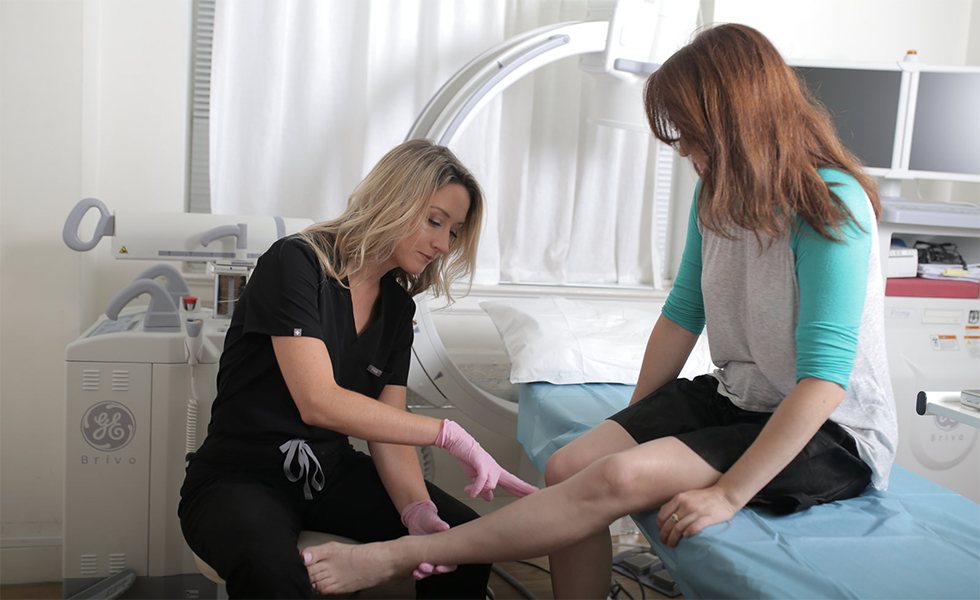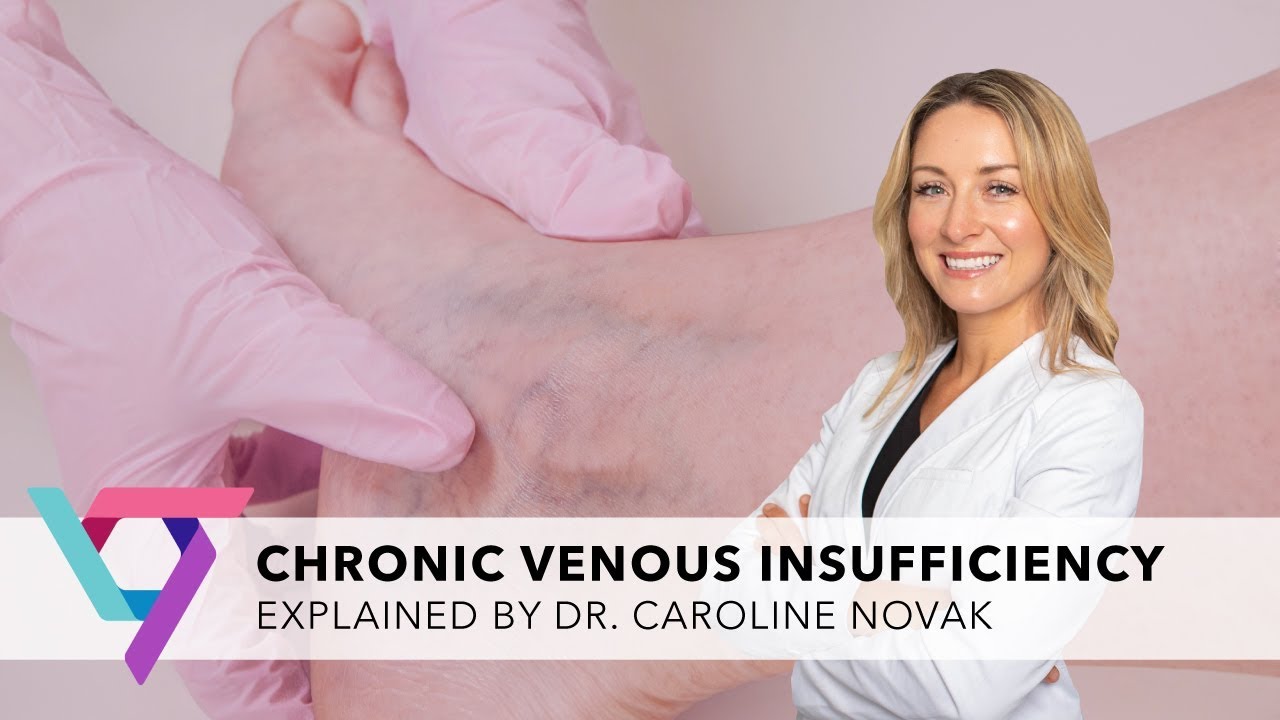Chronic Venous Insufficiency: Doctor, Treatment, Cost — According to Medical Group
Chronic Venous Insufficiency (CVI) is a dangerous circulatory disorder in which the valves in the veins collapse, which causes blood to pool in your leg veins, leading to the formation of spider veins, varicose veins, and other complications.
Our body consists of two types of blood vessels — arteries and veins. Arteries carry blood from the heart to the rest of the body and veins carry blood from the rest of the body to our heart.
The valves in the veins act like one-way doors, i.e., they allow blood to flow through but prevent it from flowing back down due to the force of gravity. As such, the valves in the veins are responsible for smooth blood circulation to the heart.
Chronic venous insufficiency is a condition in which these valves in the veins collapse. When that happens, there’s no mechanism in place to prevent venous reflux. As such, gravity forces blood to flow backward and pool in your leg veins.
Over time, as more blood accumulates in your leg veins, it starts applying pressure on the vein walls. This eventually leads to vein dilation, which results in the formation of spider veins and varicose veins along with several other complications.
If you have vein disease, it’s crucial to see a chronic venous insufficiency doctor as soon as possible. In this article, we discuss the symptoms of chronic venous insufficiency, treatments for vein disease, and how to find the right chronic venous insufficiency doctor.

Early Symptoms of Chronic Venous Insufficiency
Chronic venous insufficiency is an extremely under-diagnosed medical condition because the early signs and symptoms of vein disease resemble those of simple aging.
The following are some of the initial signs and symptoms of chronic venous insufficiency:
- Leg heaviness.
- Restless legs syndrome.
- Frequent leg cramps.
- Exhaustion.
- Formation of spider veins — a dense cluster of blood vessels on the surface of the skin.
The symptoms of chronic venous insufficiency generally get worse when blood accumulates in your leg veins. As such, the symptoms will get worse at the end of the day or after sitting or standing for long periods.

Complications of Untreated Chronic Venous Insufficiency
Venous insufficiency is a chronic condition, which means it gets worse with time. If left untreated, chronic venous insufficiency will result in the following complications.
- Varicose Veins: These are large bulging veins that appear in the form of a twisted mass of knotted ropes that protrude out of the surface of the skin. This happens due to excessive blood accumulation in your leg veins.
- Profuse Bleeding: Excessive vein dilation makes your varicose veins prone to bursting upon impact. That leads to profuse bleeding that doesn’t stop and you have to be taken to an emergency room.
- Swollen Ankles and Feet: Fluid accumulation and edema lead to swollen ankles and feet.
- Skin Disease: The breakdown of blood cells in your legs leads to the formation of rust-colored red and leathery patches on your skin.
- Skin Discoloration: The lack of blood circulation in your legs leads to skin discoloration.
- Leg Ulcers: The lack of blood circulation prevents your wounds from healing so you end up with non-healing wounds on your skin.
- Deep Vein Thrombosis: The accumulated blood forms a clot in a deep veins — the blood clots may also break away and travel to the lungs, thus leading to a potentially fatal condition called pulmonary embolism.
Duplex Ultrasound: Diagnosis of Chronic Venous Insufficiency
Duplex Ultrasound is a diagnostic test with which the vein doctors can visualize the blood flow in your deep veins. As such, it allows the vein doctor to determine if you’re suffering from chronic venous insufficiency and visualize the affected saphenous veins.
Minimally Invasive Treatments for Chronic Venous Insufficiency
In the past, chronic venous insufficiency could only be treated with surgical vein stripped procedures that were complex and risky. However, thanks to modern medicine, vein doctors can treat chronic venous insufficiency using minimally invasive procedures.
The following are some of the best minimally invasive treatments for chronic venous insufficiency.
- Radiofrequency Ablation: This is a procedure in which the vein doctor uses heat or thermal energy to collapse the diseased saphenous vein and restore blood circulation to the heart.
- Endovenous Laser Ablation: This procedure uses laser energy to destroy the diseased vein to reroute the accumulated blood to healthier veins.
- VenaSeal: This procedure uses vein glue or medical adhesive to seal the diseased vein, essentially turning it into a scar tissue that eventually gets absorbed by the body.
The cost of chronic venous insufficiency treatment may be several thousands of dollars, depending on your specific condition. However, you can get insurance coverage for radiofrequency ablation and endovenous laser ablation because they’re medically necessary procedures. VenaSeal is a new procedure that has only recently been approved by the FDA so it’s not yet covered by insurance.
Find the Best Chronic Venous Insufficiency Doctor
When looking for the best chronic venous insufficiency doctor, you must consider the following factors:
- They should ideally be board-certified because it guarantees experience and reliability.
- You should look for vein doctors with a strong educational background.
- The vein doctor should work from a highly advanced state-of-the-art vein clinic that has the equipment to support the latest vein treatments.
- They should favor minimally invasive chronic venous insufficiency treatments and avoid surgical treatments.
- Finally, the vein doctor should also be friendly and compassionate.
Vein Treatment Clinic is home to some of the best chronic venous insufficiency doctors for you. We have some of the country’s finest board-certified Ivy League-educated vein doctors who use the latest minimally invasive procedures to treat vein disease with minimal risk of side effects or complications.
For more information, please schedule an appointment with the best chronic venous insufficiency doctors near your location.









